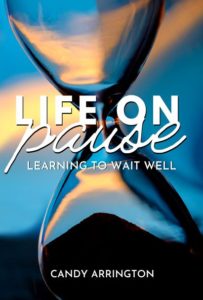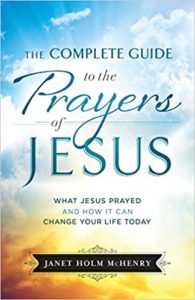
Photo by Allef Vinicius
I HAD A TERRIBLE COLD, a croupy cough, no voice, and my publicist had four interviews scheduled for me in the next week as part of the launch for my book, Fighting for Your Marriage while Separated, which had just released a couple of months earlier. I was in a quandary. How could I handle these interviews with no voice?
My husband and I began earnestly praying for my voice to return and my cough to subside. Surely God would answer our prayers. He always does so, right? Particularly when I was sharing a message of hope that so many people needed to hear.
We prayed. But nothing changed.
I called my publicist and asked her to cancel one of the interviews, but I had three more the following week. Marv and I continued praying.
A few days earlier I had had a Facebook discussion on the subject of unanswered prayer, and a woman posted a comment saying, “God always answers our prayers. Sometimes it’s yes, no, or wait. But there’s always an answer. We just need a discerning ear to hear him and be submissive to the answer He gives us.”
Was that true? Did God always answer prayer? Sometimes it seemed that He didn’t. Like now. I was praying, but not getting an answer. Was she right? Did I just not have a discerning ear?
If that’s true, I thought, how do I get a discerning ear?
A Discerning Ear
Well, that “thought” wasn’t exactly in the form of a prayer, but the Holy Spirit, who prays for us when we don’t know how to pray, (Rom. 8:26) intervened for me, and God gave me the answer to my question immediately.
We get a discerning ear by spending more time with God—by asking Him what He wants to say to us—by seeking—by listening.
So I asked God what He wanted to say to me. And again I got an answer. He wanted to take me deeper. He wanted me to spend more time with him. I was putting out to others, but I was not spending time at the source – with Him.
In response, I spent Sunday immersed in the Bible. I started a new Bible study, and read a couple of Christian books—allowing God to speak to me. I drank some pureed pineapple like some friends suggested, took the cough medication prescribed by my doctor, and continued to pray and spend time in His Word.
And I started getting answers.
One of the things God said to me that Sunday when I prayed about my cough and my voice, was “trust me.”
Trust Me
A big concern I had was whether to email my publicist and ask her to tell the host of the broadcast on Monday about my voice and my cough and let him decide if he wanted to take a chance on me. After all, it was a LIVE 60 minute show. If I couldn’t talk, he wouldn’t have a show.
As I prayed about it that Sunday, however, the one thing I kept hearing in my spirit was “trust me.” God brought Proverbs 3:5-6 to mind – repeatedly. “Trust in the Lord with all your heart and lean not on your own understanding. In all your ways acknowledge him and he will direct your paths.”
God was telling me to stop trying to figure out what I should do based “on my own understanding.” God was telling me to trust Him.
On Monday morning I woke up and took a deep breath. A DEEP breath! I didn’t cough. Clear, fresh air filled my lungs. It felt wonderful. When I spoke to my husband, my voice wasn’t raspy. He could hear me.
That afternoon I did a great one hour LIVE interview, and my voice was almost normal. I didn’t cough.
God had gotten my attention, and I hadn’t cancelled the interview. I had trusted God instead. It wasn’t that God wasn’t answering my prayer, it was that I needed to spend time with Him so I could HEAR His answer. I had been asking Him to heal me and when I didn’t hear his answer, I thought He wasn’t answering me. But there needed to be a part 2 of my prayer – “God what are you trying to show me?” God wanted me to ask part 2 before I could get a “yes” to part one.
That day I responded back to the woman on Facebook. “You make a great point. God always hears our prayers, and He always has an answer for us. When we don’t hear what the answer is, He may be calling us to go deeper with Him so we can hear His voice more clearly and develop that “spiritually discerning ear” You mentioned. God is always about relationship—our relationship with Him. His greatest desire is for us to come closer to Him where we can hear His voice. So when we don’t seem to get an answer to our prayer, we need to spend more time with Him in His word and in more concentrated time in prayer so we can go deeper, asking Him to show us what He wants us to see. Thank you for making that important point.”
Amen and Amen.
If you have a troubled marriage and want to know if God can answer your prayer for restoration, check out my book, Fighting for Your Marriage while Separated. It will not only provide guidance for this journey but also show you how to pray for your marriage.
 IT’S AMAZING TO ME how often God uses delays and waiting to bring blessing to those He loves in the stories of the Bible. But I’m struck by the fact that God also often uses these delays to test the hearts of those in waiting to see if they are worthy of the blessing he is about to bestow.
IT’S AMAZING TO ME how often God uses delays and waiting to bring blessing to those He loves in the stories of the Bible. But I’m struck by the fact that God also often uses these delays to test the hearts of those in waiting to see if they are worthy of the blessing he is about to bestow.
















